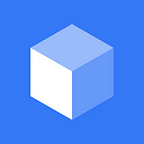Decentralized applications (dApps) are arguably one of the most influential and promising technological breakthroughs that have been made in recent years.
Let's discuss the importance of choosing the right blockchain or dApp platform for your project.
As the number of dApp platforms continues to grow, this article highlights some of the most popular.
What is a dApp platform?
DApp platform is a type of software utilized for building, running, and maintaining decentralized applications. DApps are built by using self-executing smart contracts (a backend) and a frontend user interface. Each dApp also employs a transparent code governed by autonomy and a specific consensus algorithm.
Find out more on dApps with this GetBlock’s guide
Why do we need dApp platforms and how to choose one?
Unlike traditional, or centralized, applications stored on a single server, dApps are maintained through a network of nodes, which operate independently. Moreover, dApp activity is recorded on the public ledger and is, therefore, visible to everyone. There are no intermediaries involved as the transactions are directly conducted between users — the so-called Peer-to-Peer transactions.
DApps are generally more trusted by users as they are the ones governing the software. In many ways, dApps are also more efficient than traditional applications where the data is controlled single-handedly.
When selecting the blockchain for building and storing a dApp, it is important to consider a few of the most cardinal points, including the type of solution offered by the platform.
Public
The go-to choice for many developers, public blockchains are permissionless, meaning they can be accessed with no decentralized control.
Private
These ‘permissioned’ blockchains are run with the help of a third party. Users must be accepted in order to access the platform.
Hybrid
Hybrid blockchains combine elements from the two previous types mentioned above.
Consortium
Unlike hybrid blockchains, consortium platforms can be run by multiple organizations.
Choosing a specific type of blockchain implies that it can be more or less suitable for a particular purpose. E.g. public platforms are commonly used for performing transactions and validating documents.
Some blockchains may require the knowledge of a programming language. For example, [Ethereum’s] Solidity uses the Ethereum Virtual Machine to develop smart contracts.
